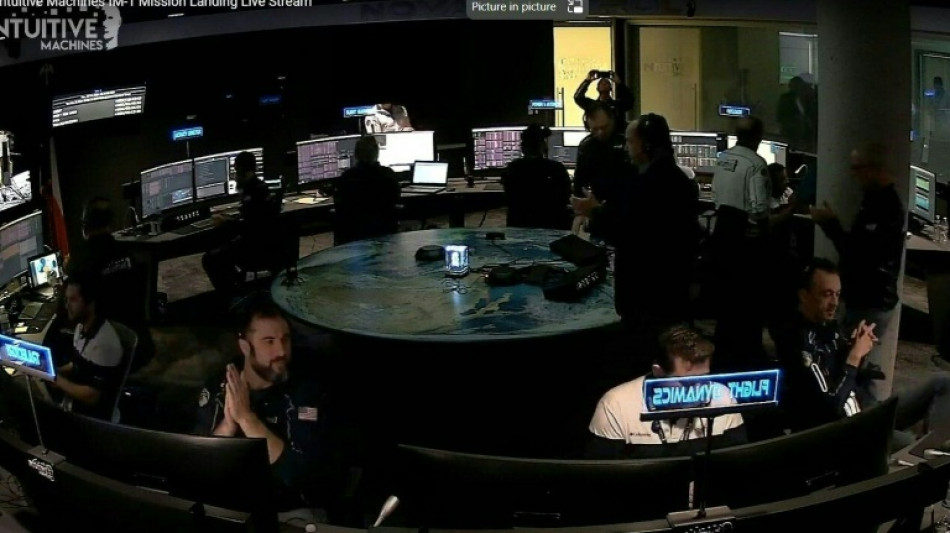
RBGPF
62.2800


The first American spaceship on the Moon since Apollo is "alive and well" following a drama-packed touchdown, the company that built it said Friday as it worked to download data and images from the uncrewed robot.
Odysseus landed near the lunar south pole Thursday at 6:23 pm Eastern Time (2323 GMT), after a nail-biting final descent when ground teams had to switch to a backup guidance system and took several minutes to establish radio contact after the lander came to rest.
"Odysseus is alive and well," Intuitive Teams, which achieved the first lunar landing by a private company, posted on X on Friday morning. "Flight controllers are communicating and commanding the vehicle to download science data."
The Houston-based company's stock price soared by 40 percent in early trading before paring back to 20 percent.
Engineers are working to learn the robot's precise coordinates in the Malapert A impact crater and its tilt, as the landing phase was carried out by the robot autonomously, using its instruments to navigate the Moon's terrain.
The company said Odysseus, which is the size of a large golf cart, is upright -- a relief after the Japanese space agency's SLIM lander, which touched down in January, ended up upside-down.
- Private enterprise -
Intuitive Machines pledged to soon downlink the first images taken by the lander, while "EagleCam," a camera could also soon release pictures from an external perspective after the device was shot out of Odysseus in the final seconds of landing.
Odysseus is the first success for a new fleet of NASA-funded lunar landers designed to carry out science investigations that pave the way for the return of American astronauts to the Moon later this decade, under the Artemis program.
NASA, along with international partners, are planning to develop long term habitats in the south pole, harvesting ice there for drinking water and for rocket fuel for eventual onward voyages to Mars.
A moonshot by another American company last month ended in failure, raising the stakes to demonstrate that private industry had what it took to repeat a feat last achieved by US space agency NASA during its manned Apollo 17 mission in 1972.
Underscoring the technical challenges inherent in the task, Intuitive Machines' own navigation system failed and Odysseus instead flew the final leg of its trip using an experimental laser guidance system developed by NASA.
Confirmation of landing was supposed to come seconds after the milestone, but instead nearly 15 minutes passed as announcers mused whether the hexagon-shaped craft had come down "off angle."
Finally, the company's chief technology officer Tim Crain confirmed "our equipment is on the surface of the Moon and we are transmitting," as applause broke out in mission control.
K.Yamaguchi--JT